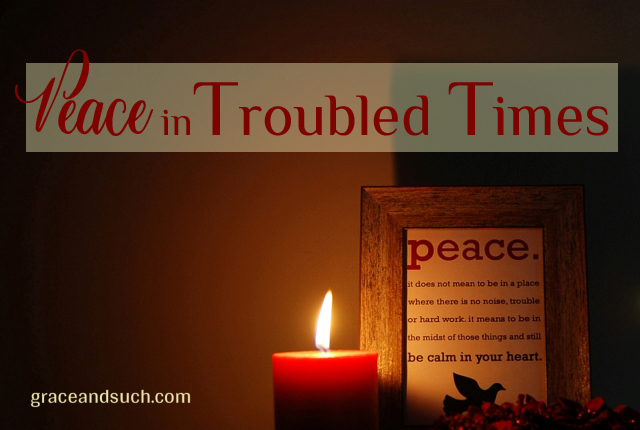The tumultuous nature of our world often weighs heavily on our hearts. Wars rage, communities fracture, and unrest looms large. Amidst this chaos, the power of prayer emerges, offering solace and a pathway to serenity. Christian prayers for peace serve as poignant reminders of the divine promise of tranquility. These prayers resonate with individuals grappling with anxiety and despair, providing them with a beacon of hope in full view of troubling circumstances.
One of the most profound components of Christian spirituality is the recognition of prayer as both an intimate conversation with God and a communal act seeking divine intervention. Prayers for peace are not merely words spoken in despair but rather are vessels through which believers channel their desires for harmony, understanding, and love. These prayers encompass various forms—personal supplications, communal offerings, and meditative reflections—each serving as an essential element in the pursuit of peace.
In the personal realm, prayers can be deeply introspective. For example, a prayer might begin with an acknowledgment of the chaos that surrounds us. One might say, “Lord, in this storm of uncertainty and fear, I seek Your presence. Breathe peace into my troubled heart. Help me to trust in Your sovereign plan.” Such a prayer illustrates a recognition of personal struggles while invoking divine support. Here, the individual beseeches Christ for inner calm and clarity, relying on the understanding that serenity begins within before extending outward.
Additionally, communal prayers unite groups in a common purpose, amplifying the collective hope for peace. Churches frequently gather for prayer vigils during times of significant societal strife. These gatherings may feature structured prayers such as the Prayer of St. Francis: “Lord, make me an instrument of Your peace. Where there is hatred, let me sow love; where there is injury, pardon; where there is doubt, faith; where there is despair, hope; where there is darkness, light; and where there is sadness, joy.” This moving petition encapsulates the essence of Christian benevolence and compassion, serving as an inspiring mantra for those striving to embody peacefulness in both word and action.
The power of prayer may also manifest through scripture, with verses serving as a foundation for peace-seeking prayers. Philippians 4:6-7 instructs, “Do not be anxious about anything, but in every situation, by prayer and petition, with thanksgiving, present your requests to God. And the peace of God, which transcends all understanding, will guard your hearts and your minds in Christ Jesus.” This passage reinforces the belief that prayer, coupled with thanksgiving, leads to divine peace. Individuals may use this scripture when composing their prayers, reminding themselves of the transformative power of faith during adversity.
Moreover, meditative prayers or contemplative practices invite believers to engage in a state of reflection and stillness. This approach encourages individuals to listen for God’s voice amidst the noise. A meditative practice might involve focusing on a phrase such as “Be still, and know that I am God” (Psalm 46:10). This simple yet profound directive invites serenity and fosters an environment conducive to peace. Through this ancient spiritual discipline, one can cultivate an awareness of God’s presence and a deeper connection to divine tranquility.
Furthermore, prayers for those afflicted by war and strife signify a broader understanding of peace encompassing global considerations. Praying for nations torn apart by conflict, refugees seeking safety, and communities facing violence is imperative. A prayer might articulate this concern: “Gracious God, we beseech You to intervene in areas plagued by strife. May Your peace, which surpasses all comprehension, embrace those who suffer. Heal divisions and mend hearts, as we cry out for justice and reconciliation.” Such prayers evoke sympathy for the afflicted and reinforce the conviction that peace is not merely an individual pursuit but rather a collective aspiration demanding active engagement and compassion.
In addition to offering peace for others, Christian prayers also call for forgiveness. Unforgiveness breeds bitterness and strife. Consequently, invoking God’s assistance helps mend broken relationships. A powerful prayer in this context could be: “Lord, grant us the strength to forgive as You have forgiven us. Help our hearts release the burdens of resentment, allowing love to reign in our interactions.” Cultivating a spirit of forgiveness can lead to profound peace both individually and within communities.
In times of crisis, it is also essential to remember the importance of thanksgiving as a facet of our prayers for peace. Expressing gratitude cultivates a perspective that acknowledges God’s past provisions, infusing hope into present woes. A prayer threaded with gratitude would say, “Even in this tumult, I thank You, Lord, for the blessings that abound and for the strength You provide. Let my heart remain anchored in thankfulness, as I seek Your peace amidst these trials.” This approach aligns with the biblical injunction to be thankful in all circumstances, reframing our struggles in light of God’s goodness.
In conclusion, Christian prayers for peace during troubled times provide a multifaceted approach to navigating the complexities of modern life. Through personal reflection, communal support, scriptural foundations, meditative practices, and a focus on forgiveness and gratitude, believers engage in a sacred pursuit of divine tranquility. As followers of Christ, the commitment to pray for peace not only cultivates personal serenity but also fosters a broader vision of compassion and unity for our world. As you embark on this journey of prayer, may you find inspiration and strength in the profound words and actions that seek peace in the face of adversity.



